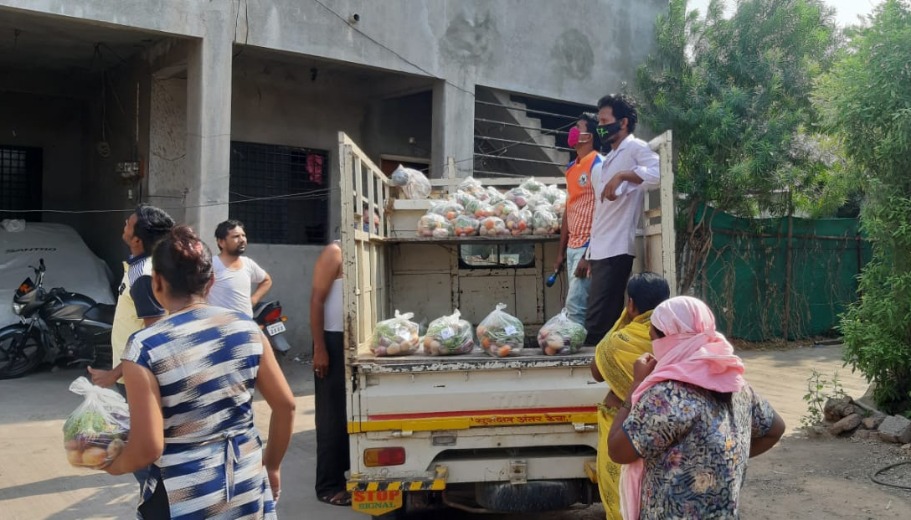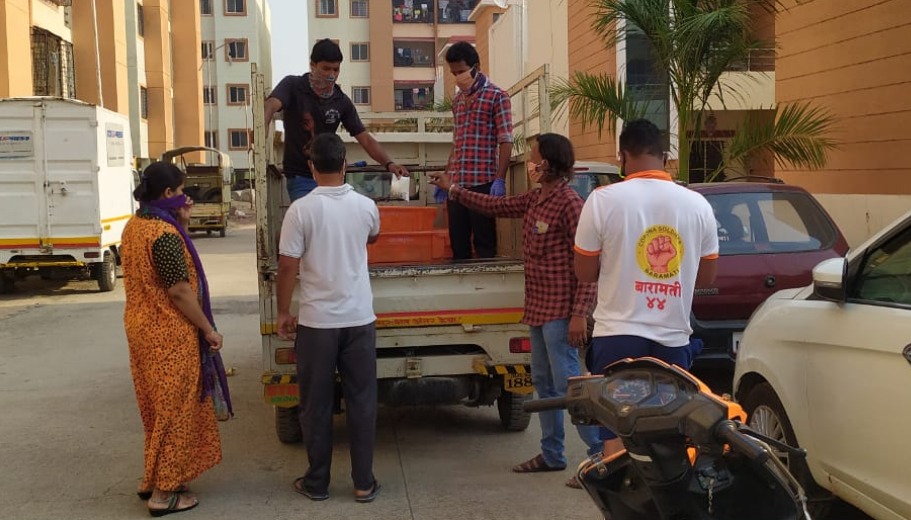
Maharashtra’s ‘Baramati model’ claims success with no cases in 10 days
Baramati, a city in Maharashtra’s Pune district that was declared as a COVID-19 hotspot, has come up with its own containment plan, which is informally named the ‘Baramati model’ by the state administrators.

Baramati, a city in Maharashtra’s Pune district that was declared as a COVID-19 hotspot, has come up with its own containment plan, which is informally named the ‘Baramati model’ by the state administrators.
The model is now becoming popular and is being hailed as successful since no positive case of the virus has been reported in the city in the last 10 days, and especially because of its supply mechanism that has reduced the stress on the residents.
In this model, police, government authorities and local volunteers are working together, armed with a grocery delivery app and databases of its residents. Like other models that have grabbed headlines over the past few weeks, such as Agra, Bhilwara and Pathanamthitta, this one too ensured door-to-door supply of grocery and essential items as part of the strategy.
How does Baramati model work?
Chetan Kulthe, a Baramati resident who runs his own printing business, hasn’t stepped out of his house in the last two weeks. “It just takes a single phone call for essentials to be delivered. Why would I risk my life and step outside?” he asked while explaining the supply system.
He said there’s a WhatsApp group for his area where he has to post the list of grocery and other essential items he needs. “Subsequently, I get the bill amount and the time of delivery in reply to that message. Then I have to confirm it to get it delivered at home. There’s no delivery charge as well.” Moreover, milk and vegetable vans pass through every lane in the city on a daily basis.

Corporator Santosh Jagtap of Ward number 11 (Kasba ward) said a team of 30 volunteers in the area along with a police marshall are carrying out the delivery services. “We deliver milk every morning in designated areas and vegetables are supplied on alternate days. We are always active on the WhatsApp group and respond to all queries on an immediate basis,” Jagtap told The Federal.
The vegetable packets depend on the availability of the veggies; one packet usually has three to four different varieties. These packets are sold at ₹50 each. “We have begun delivering mutton and chicken since March 23,” Jagtap added.
Medicines for diabetes and blood pressure-related issues are also being provided through this distribution system.
Zonal management and tech support
Further explaining the strategy, a senior official at Baramati Municipal Council said the city was divided into 44 zones after it was completely locked down, for better management. Each zone has one help officer who leads a team of 10 to 30 volunteers, said Yogesh Kaduskar, chief officer of the municipal council.
“One police marshal is also appointed to help the volunteers with law and order issues. All these people work together to supply the essentials and ensure people stay at home,” said the senior official.
Around 64 parlours are distributing more than 8,000 litres of milk every day while 98 vendors are delivering vegetable packets across the city.
Related news: Bhilwara strategy should be adopted by COVID-19-affected cities: Officials
Besides, 274 teams are conducting household surveys every day to find suspected cases of the virus. In the first round, 26 thousand houses and around 1.27 lakh people were surveyed, and further rounds are currently being carried out. This survey had helped in finding the last COVID-19 patient in this region.
Kaduskar said the authorities have also created a database of the vulnerable section of the population. “This consists of information of about 2,933 persons who are above 60 years age and/or have co-morbid conditions like diabetes, asthma, or heart and breathing-related diseases. They are being monitored separately,” he said.
The authorities are also maintaining a separate database of patients reaching out to hospitals, to monitor them. So far, a total of 92 individuals have been home quarantined following the survey.
Kaduskar said if people were allowed to procure grocery items themselves, this would have led to around 15-20 thousand people stepping out of their houses. But as a result of this strategy, only 1,000 to 1,500 people, including volunteers, are out on the roads. This has drastically decreased mobility in the city, he said.
Need grocery? Use this app
The police in Baramati have developed a ‘Kirana App’ to help delivery of grocery items in the region. As on April 23, around 6,800 deliveries of groceries were made through the app in the last 15 days.
They have also issued three types of passes for those providing essential services during the lockdown, including the police, medical professionals and volunteers or NGOs. The city has been barricaded and cops are keeping strict vigil to prevent people roaming around unnecessarily.
Seven cases of COVID-19 have been reported from Baramati so far, with the first case being reported on March 29 and the latest on April 14. As of April 24, six out of the seven patients have been discharged while only one is under treatment. The city has not reported any new case since April 14.
Related news: By flattening the curve, Kerala shows the way to rest of India


